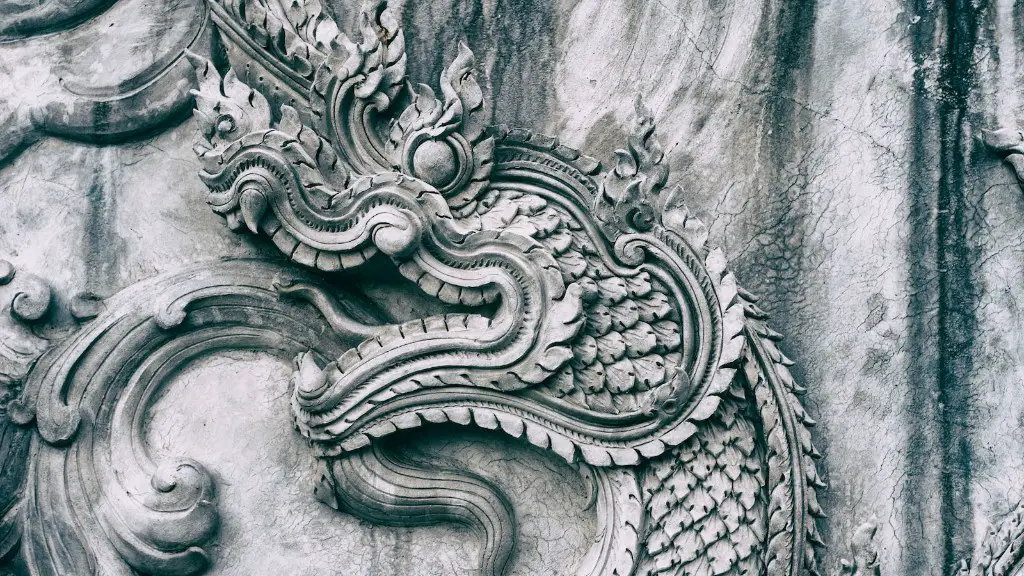As Islam spread across Africa, it brought with it new ideas and beliefs that had a profound impact on the continent. Islam introduced the concept of one God, equality of all people, and justice. These ideas challenged the existing social order and eventually led to political and economic changes. Islam also had a significant impact on the arts and architecture of Africa.
The spread of Islam throughout Africa had a profound and lasting impact on the continent. It brought a new religion and new ways of thinking to the people of Africa and helped to create a more unified and stable continent. Islam also had a significant impact on the economic and political development of Africa.
What African region was affected by the spread of Islam?
Islam first reached West Africa in the 8th century, but it was not until the 10th century that it began to spread throughout the region. The spread of Islam in West Africa was a gradual and complex process, and it was not until the 13th century that the majority of the population had converted to the faith. The presence of Islam in West Africa has had a profound impact on the region’s culture and history, and it continues to be a significant force in the region today.
Muslim traders were some of the most skilled in the world and they used these skills to their advantage. They were able to monopolize the East-West trade of the maritime Silk Roads and connect various major ports in eastern Asia. This allowed them to become very wealthy and powerful.
Why did Islam spread in Africa
Islam is a religion that was spread throughout West Africa via merchants, traders, scholars, and missionaries. This largely happened through peaceful means, with African rulers either tolerating the religion or converting to it themselves. Islam has had a significant impact on the cultures and societies of West Africa, and continues to do so today.
Islam played an important role in the development of the Swahili people and their culture. Arab traders first introduced the religion to the Swahili coast in the ninth century. The Swahili people appreciated the religious value of Islam and also recognized that adopting their neighbor’s religion would help their trading relationships. This gave them new access to trade networks and helped to develop the Swahili culture.
When did Islam spread to Africa?
Islam is a religion that began in the 7th century in Arabia. It is a monotheistic religion, which means that Muslims believe in only one God. Islam spread quickly throughout the world, and today there are over 1.6 billion Muslims worldwide. Islam is the second largest religion in the world after Christianity.
Islam is a religion that began in the 7th century in Arabia. It is a monotheistic faith, based on the belief in one God. Muslims believe in Muhammad as the final prophet of God. The Quran is the holy book of Islam.
Islam spread throughout the world through a variety of means. Arab Muslim forces conquered vast territories and built imperial structures over time. Trade also played a role in the spread of Islam, as Muslim traders traveled to different parts of the world. Pilgrims also helped to spread the religion, as they often visited Muslim holy sites. Finally, missionaries played a role in spreading Islam to different parts of the world.
What impact did Islam have on North Africa?
Islam had a significant impact on the culture of northern Africa. Although some local traditions and values were often incorporated into the religion, Islam had a unifying influence in the government, the culture, the architecture, and the economy.
Some historians have argued that the reforms introduced in Arab societies during the Ottoman period improve upon existing social structures and practices. These historians point to changes in areas such as social security, family structure, slavery and the rights of women as evidence of this claim. While it is certainly true that the Ottoman period saw some positive changes in these areas, it is important to remember that these reforms were often implemented in a way that benefited theOttoman ruling class at the expense of the general population. Therefore, it is important to view these claims with a critical eye.
How did Islam affect northern and eastern Africa
Islam is a religion that originated in the 7th century in the Arabian Peninsula. The adherents of Islam are called Muslims. Islam spread across the globe through conquest and conversion. By conversion and conquest, Islam spread across North Africa, into the eastern Horn of Africa, and even over the SAHARA DESERT into West Africa The arrival of Islam had a major impact on the political and social development of those regions, and it remains a significant force in Africa today.
The Arabs began their conquest of the Byzantine empire in the 7th century, and by the end of the 8th century had control over Syria, Palestine, and Egypt. The Sasanian empire, located in what is now Iraq and Iran, was conquered by the Arabs soon after, in the early 8th century. With these conquests, Islam began to spread throughout the region and the world.
What were the two main reasons for the spread of Islam?
The spread of Islam was largely due to the fact that it was situated on important trade routes. Additionally, the Muslim military conquered a great deal of territory, and the Muslim rulers were known for their fair treatment of conquered peoples. All of these factors led to a quick and widespread adoption of Islam.
The coming of Islam to Sudan changed the nature of Sudanese society and economy. It facilitated the division of the country into north and south, however, these benefits were largely restricted to urban and commercial centers. Islam also fostered political unity, economic growth, and educational development among its adherents.
How did Islam contribute to society
Muslim scholars made significant contributions to the field of astronomy, which laid the foundation for the European Renaissance. They translated classic Greek texts and developed new techniques for observing and measuring the stars. Their work played a key role in the advancement of science and technology during the Renaissance.
The coming of Islam to Sub-Saharan Africa facilitated the rise of political empires, encouraged trade and wealth, and increased the traffic in slavery. In its pure form, Islam was more attractive to kings because of its concept of the caliph combined political power with religious authority. However, over time, the local African cultures began to mix with Islam, creating a unique African form of the religion. This hybrid form of Islam allowed for the rise of even more powerful empires, such as the Ghana Empire, the Mali Empire, and the Songhay Empire. Islam also played a role in the trans-Saharan trade, which brought wealth and prosperity to the region. Finally, the slave trade also increased with the coming of Islam, as slaves were needed to support the growing empires.
How did the religion of Islam change?
The military expansions of the early Islamic period did spread the religion of Islam to new areas, but it was only later on that Islamic culture truly began to spread. This was facilitated by increased trade between cultures, the efforts of missionaries, and changes in the political structure of Islamic society that made it more open to outside influences. All of these factors led to a marked increase in the number of people converting to Islam, and the spread of Islamic culture to new areas.
Africa is a vast and diverse continent with a long history of human habitation. For most of that time, the continent was largely isolated from the rest of the world, and the various cultures that developed in Africa evolved independently from each other. One of the largest factors in this isolation was the lack of contact with the Islamic world. Islam first began to spread into Africa in the 7th century, but it wasn’t until the 10th century that it began to have a significant impact on the continent. In the centuries that followed, Islam slowly began to spread across Africa, resulting in the development of a distinct African Islamic civilization. However, even in areas where Islam became dominant, many Africans continued to practice their indigenous religions and to follow their traditional customs.
Warp Up
The spread of Islam had a significant impact on the African continent. Islam brought with it new ideas and beliefs which were embraced by many Africans. This resulted in a more harmonious society as people of different faiths were able to live and work together. Islam also had a political impact on Africa as it provided a unifying force for many different groups.
The spread of Islam in Africa had a profound impact on the continent. It not only changed the religious landscape, but also the political and social landscape. Islam brought with it a new sense of unity and community that was previously not present. It also introduced new concepts of governance and social welfare. The impact of Islam on Africa was far-reaching and long-lasting.




